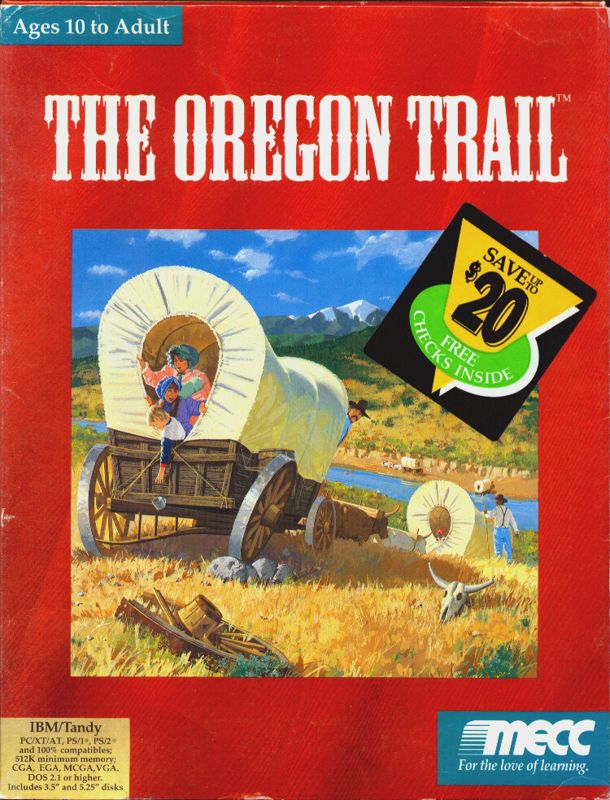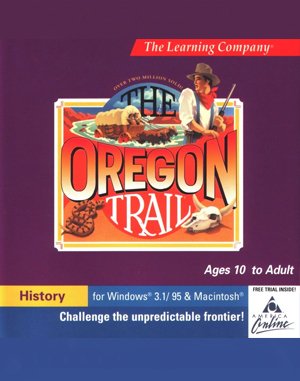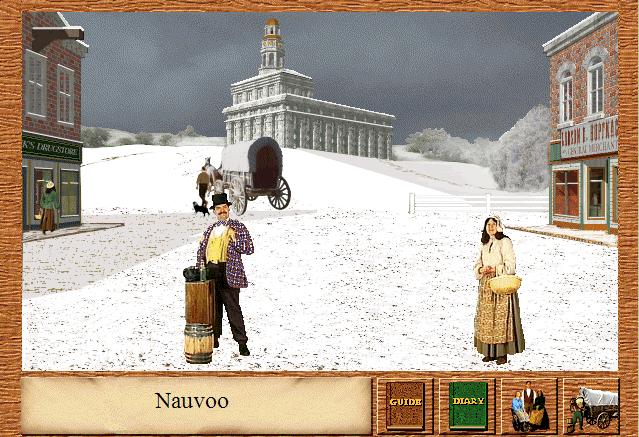
A banker starts off with $2000, but receives a 1x bonus (no bonus). For example, a teacher may begin the game with only $500, but receives a 5.0x score bonus. While some occupations have more money than others, the low income occupations get a greater final bonus, which proves crucial in getting a decent score in the end of the game. (Occupations listed in descending order in terms of cash on hand in the beginning of the game.) Such occupations include banker, doctor, merchant, pharmacist, wainwright, gunsmith, mason, blacksmith, wheelwright, carpenter, saddlemaker, brickmaker, prospector, trapper, surveyor, shoemaker, journalist, printer, butcher, baker, tailor, farmer, pastor, artist, and teacher. In Oregon Trail II, the player can choose from a number of different occupations, many with different skills that can assist you in your journey across the west. Quick Start quickly generates options mentioned above for the player, with the only editable field being the name. Other options include loading a saved game, and the "quick start" option. Players with the cooking skill are able to increase the nutrition value in their food. For example, players with the botany skill are more likely to find edible plants. Each skill raises the chance of something happening or not happening. If the player does not select any skills, they will be converted into bonus points at the end of the game. Automatic skills, based on the occupation, are free. Finally, there is a skills screen where players may spend 120 points on extra skills: medical, farming/animals, botany, and sharpshooting, to name a few. Also, they may select how many others are with them in their wagon, along with their names and ages this drastically added to the game's popularity as players could seemingly "live out" the journey with friends and family. Travel is much easier in later years, as there are more towns and trading posts along the way to resupply your party.Īt the beginning ("New Game"), players may start a new game where they choose their name, occupation, level, date of travel, their starting point and destination, and type of wagon. This version also allows the player to choose between 21 years of travel (rather than 1 in the original) from 1840 to 1860. Players are also able to talk with other settlers along the way and ask their advice when needed. Whenever an accident happens, the game halts and the player must decide what to do in response.

For instance, rafting down the Columbia River is a much greater challenge than it was in the original game. While this is a step up from the days of having to type “Bang” and “Pow” to shoot game in the earliest versions, a quick play of Oregon Trail: Classic Edition will show kids (and many adults) how lucky they've had it compared to Generation X, who had to walk to school through snow, uphill both ways, to get to their vidya.Oregon Trail II includes far more detail than the original. Still, this remains an artifact for the curious. In fact, many adults in their 30s today are far more likely to have grown up on either of those than the variants of the Ur Oregon Trail. Later versions, including the 1992 Oregon Trail Deluxe and the 1995 Oregon Trail II offer vast improvements on both graphics and gameplay.

Gameplay in the older versions of Oregon Trail consists mostly of hunting every day to make the most of your food supply (a minigame where you shoot at a variety of game) and waiting for your party to reach the next landmark. Much of its exposure came in classrooms, due to its educational nature.īy the standards of the time in which the 1990 “Classic Edition” was released, much less those of today, there's very little actual substance to Oregon Trail, and many will find it either tiresomely repetitive or only good for a brief jaunt down nostalgia lane.

Still, it is hard to say how much of the fondness gamers feel towards this storied title is due to the fact that Oregon Trail was literally the first (and in some cases, the only) video game many children played. It has inspired countless gamers and spawned countless memes.

There are few video games more fondly remembered than the Oregon Trail.


 0 kommentar(er)
0 kommentar(er)
